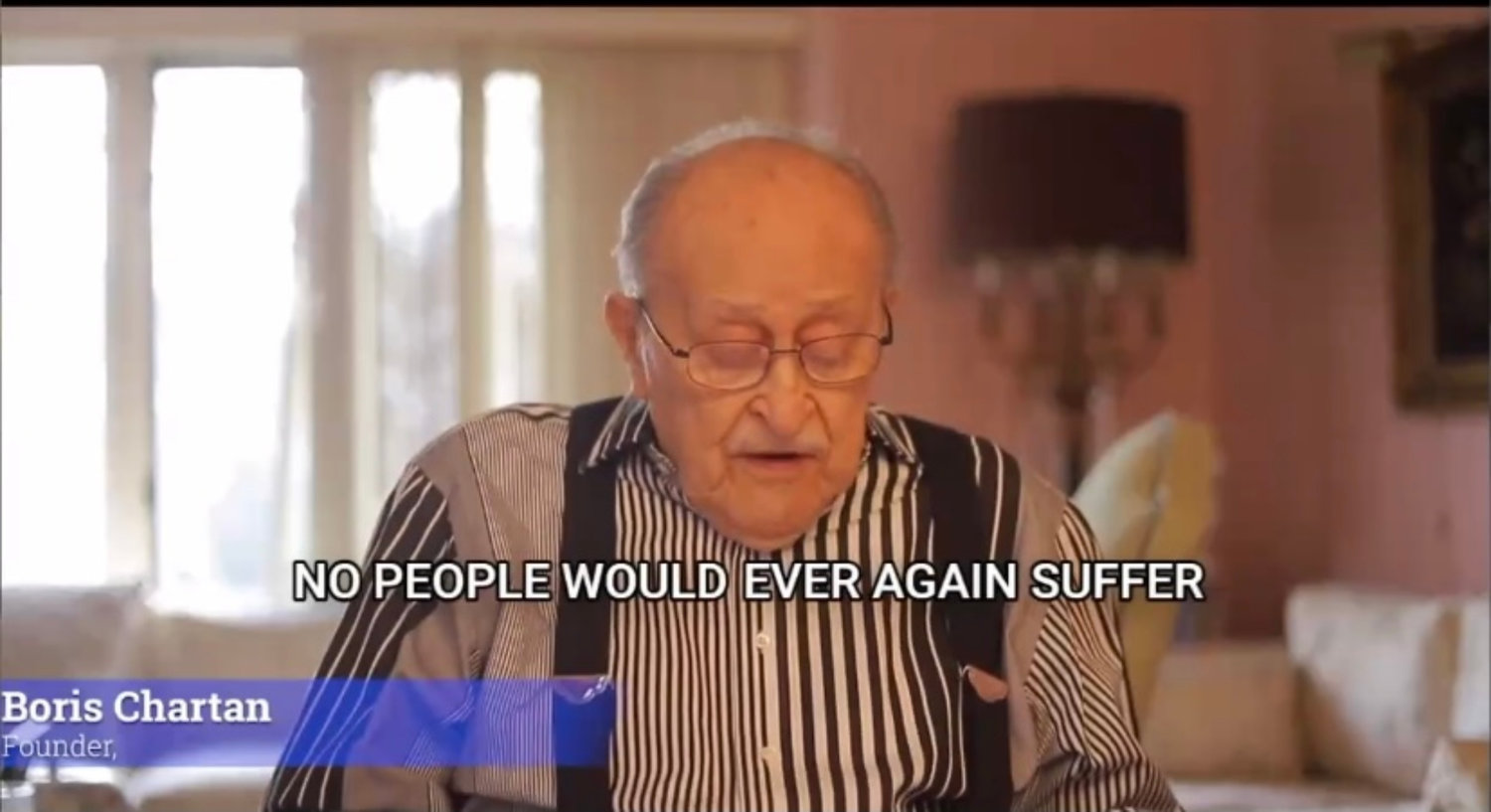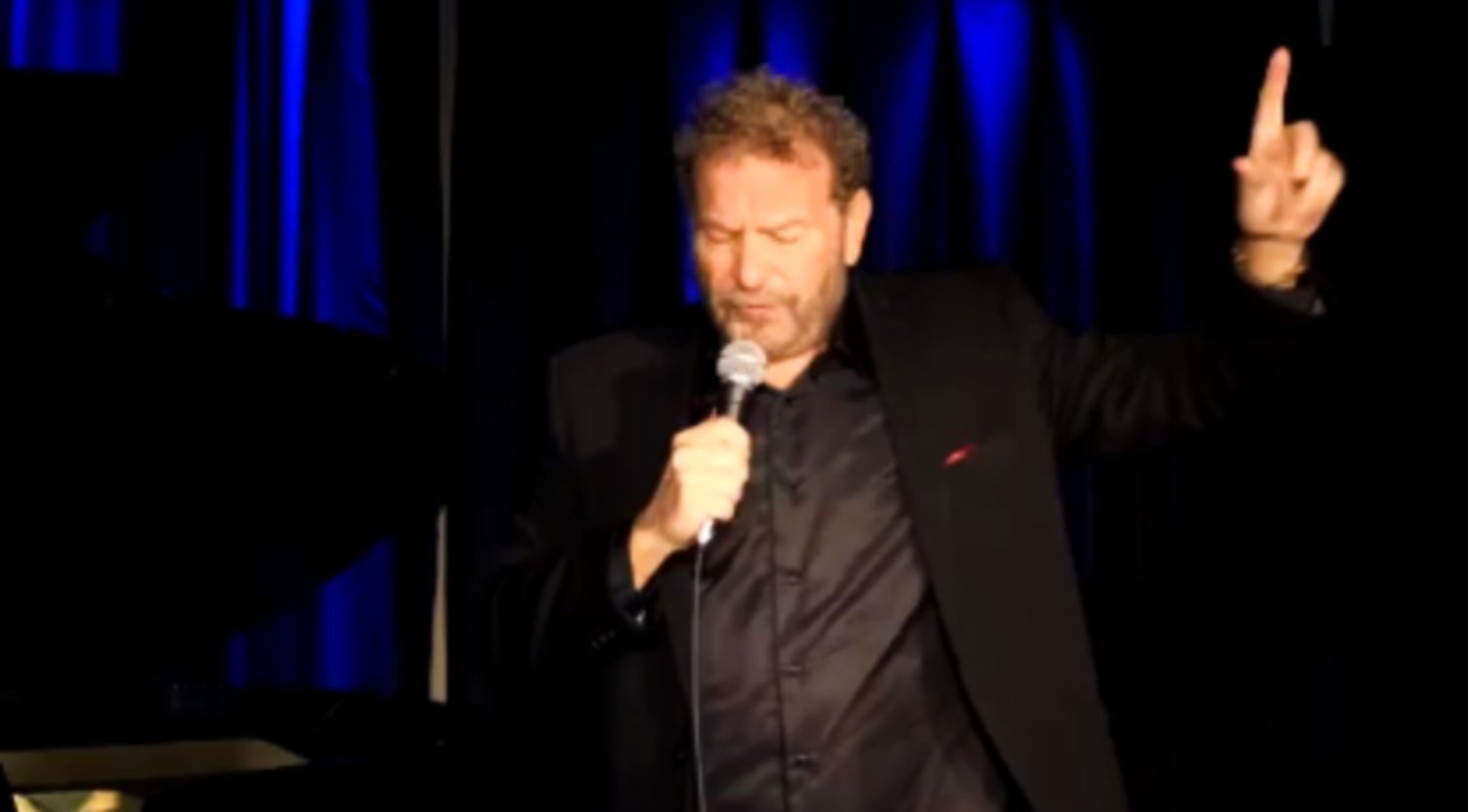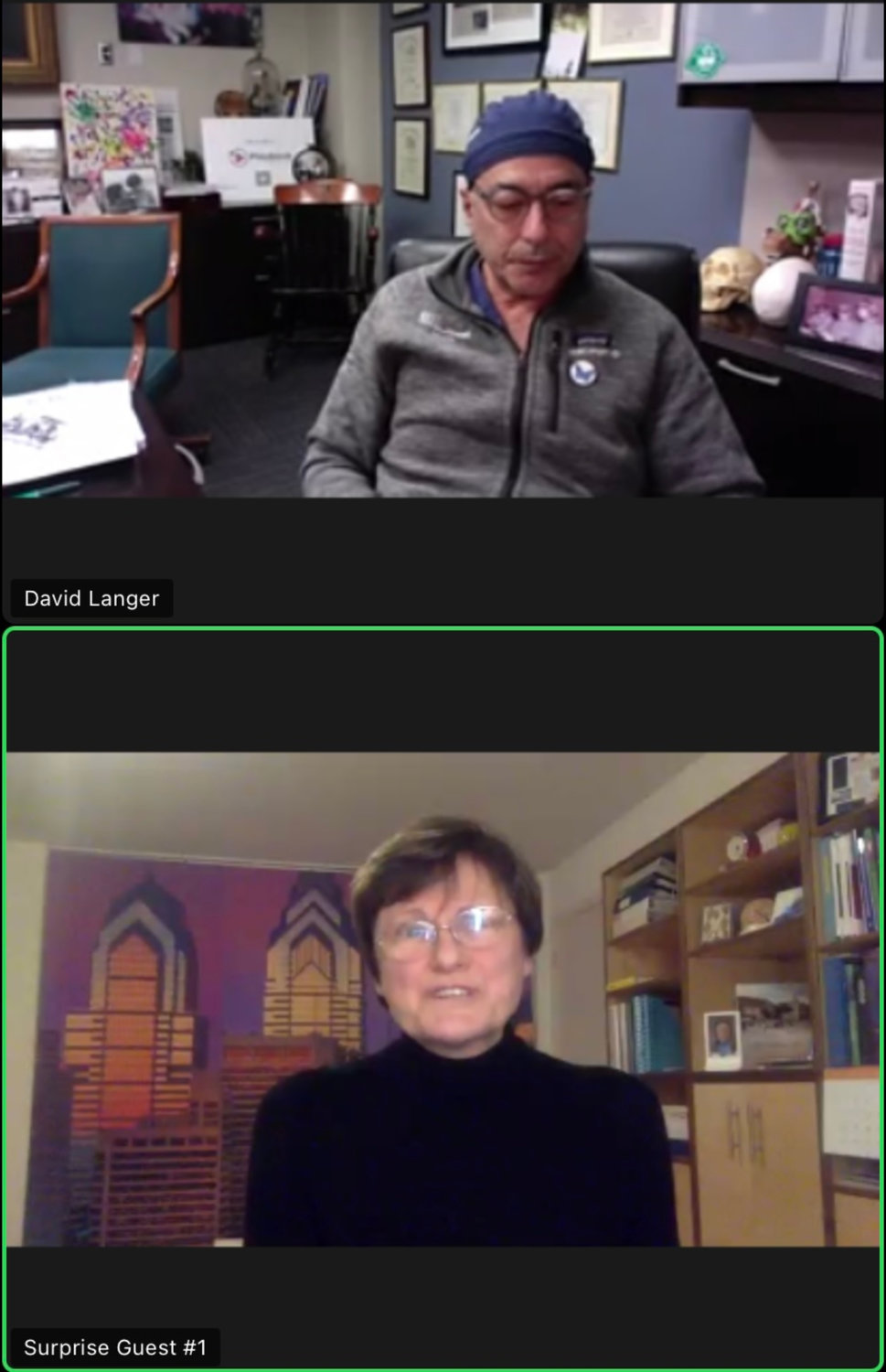Thursday, April 18, 2024
Fighting ‘two pandemics,’ anti-Semitism and Covid
HMTC honors its founder, Boris Chartan, at gala
The Holocaust Memorial and Tolerance Center of Nassau County held a Virtual Gala Concert on Tuesday evening, complete with tears, touching remarks and songs performed by Israeli cantor and “Les Misérables” star Dudu Fisher.
The event was one big thank-you letter to Boris Chartan, a Holocaust survivor who founded the center in 1992.
“This has been a year of firsts and challenges,” said Andrea Bolender, the center’s board chair. “I’m proud to tell you that HMTC has been at the forefront of weathering those firsts and climbing the mountains of those challenges.”
And on the eve of National Holocaust Remembrance Day, those challenges were reflected on and stories of triumph and perseverance shared. Even through there are challenges in passing the memories of the Holocaust on to young people, and teaching those who see hate to stand up by being “up-standers,” Chartan’s mission has repeatedly come to fruition.
“‘It will not be a dream’: The most appropriate words from the father of modern Zionism, Theodore Hertzl, aptly describe the feelings I have for the upcoming concert event . . .,” Chartan said in pre-recorded remarks. “For many years, I had a dream of establishing a center in Nassau County that would educate our children and their children and their children’s children, not only about the horrors of our history, but also about the need to live together in harmony so that in the future, no people would ever again suffer from the damage caused by racial and religious hatred and intolerance.”
Chartan said he was honored to share the event with those who have made it possible to teach people to accept and celebrate one another’s differences. Supporters of his mission worked tirelessly to bring the promise of “never again” to life, he said.
This mission is especially important given the rise of hate and division, along with the passing of Holocaust survivors, Chartan said, and the responsibility of remembrance now falls on a new generation.
The night’s special guests included co-hosts Dr. David Langer, chair of the Department of Neurosurgery at Lenox Hill Hospital in Manhattan, and Vice Chair Dr. John Boockvar, both of whom star in the 2021 Netflix docu-series “Lenox Hill.”
Another special guest, Dr. Katalin Karikó, senior vice president of Bio-NTech RNA Pharmaceuticals, was invited to introduce Langer. “She has been helping to save humanity,” said Keith Gustein, an HMTC board member. “Through her tireless efforts and pioneering analysis, Dr. Karikó’s research helped develop the Covid-19 vaccine that will help end this pandemic.”
“Thirty-two years ago, when I started to work at the University of Pennsylvania, I met a bright young medical student, David Langer,” Karikó said. “He was curious. He wanted to know everything. He wanted to know everything that I knew, and he was really wanting to make real impact on patients’ life.”
After Langer completed his residency in neurosurgery, Karikó said, they both worked tirelessly, shoulder to shoulder, in an effort to develop messenger RNA for the treatment of strokes. “Fast-forward 30 years and here we are, with two revolutionary anti-Covid-19 vaccines based on [messenger RNA],” Karikó said.
Not expecting to see Karikó, Langer wiped away tears. “I hope that someday, when you win the Nobel Prize,” he told her, “I can do the same thing for you.”
In his remarks, Langer said he had learned about the Holocaust by reading about it, and then he met his future wife, whose father was a 16-year-old in Berlin when his parents took him from their home in 1940.
“His father was depressed — his business was taken away from him in the Nuremburg Laws,” Langer said. “He moved his entire family . . . to New York City. He learned, in a year, the English language and then came back and fought as a GI, as a U.S. Army member.”
Kathy Boockvar, the secretary of the Commonwealth of Pennsylvania and John Boockvar’s sister, spoke about her brother. Even with his busy schedule, he continues to support her, Kathy said, and helped her as she oversaw the Pennsylvania election using a technique John calls “gritflowness,” combining grit, flow and mindfulness. He uses the technique to prepare for neurosurgery.
Her brother wiped a tear away before telling his sister that it has been a pleasure supporting her and being a protective brother from a far.
“My great-grandfather John Bailey, in the late 1800s, was one of 10 children in his family,” Boockvar said. “As my mother tells the story, he was chosen as the smartest child of the 10. John Bailey was chosen, and the other nine had to work at the butcher, but they worked so that John [could] go to Yale. Now, Jews in the late 1800s did not go to Yale, but John started a tradition, and John Bailey became a doctor.”
Boockvar said that story set him on his own path to becoming a doctor, joining four generations of physicians. Among his wife’s ancestors were Holocaust victims and survivors, including one who came to America at age 19, joined the U.S. Army and used his knowledge of German language to help liberate concentration camps.
Israel Nitzan, the acting consul general at the Consulate General of Israel in New York, said in a video message that he was honored to be part of the virtual gala as the world faces two pandemics, the rise of anti-Semitism and the Covid-19 pandemic.
He acknowledged the role of Chartan, who has battled the “first pandemic,” along with Boockvar and Langer, who faced Covid-19, the “second pandemic,” on the front lines.
Said Bolender, the center’s board chair: “The fact that we were able to honor the person fighting the pandemic of anti-Semitism and doctors that are doing neurosurgery during a pandemic, it’s such a blessing for us.”
Then event raised almost $100,000 for Holocaust education.
HELP SUPPORT LOCAL JOURNALISM
The worldwide pandemic has threatened many of the businesses you rely on every day, but don’t let it take away your source for local news. Now more than ever, we need your help to ensure nothing but the best in hyperlocal community journalism comes straight to you. Consider supporting the Herald with a small donation. It can be a one-time, or a monthly contribution, to help ensure we’re here through this crisis. To donate or for more information, click here.
Sponsored content
Other items that may interest you








